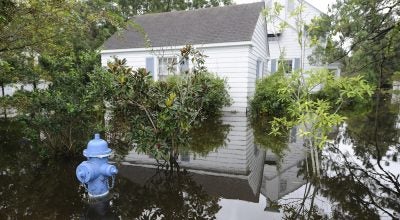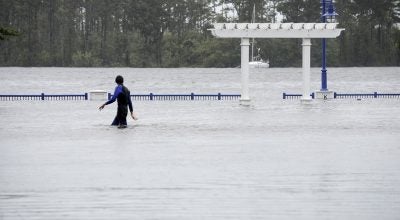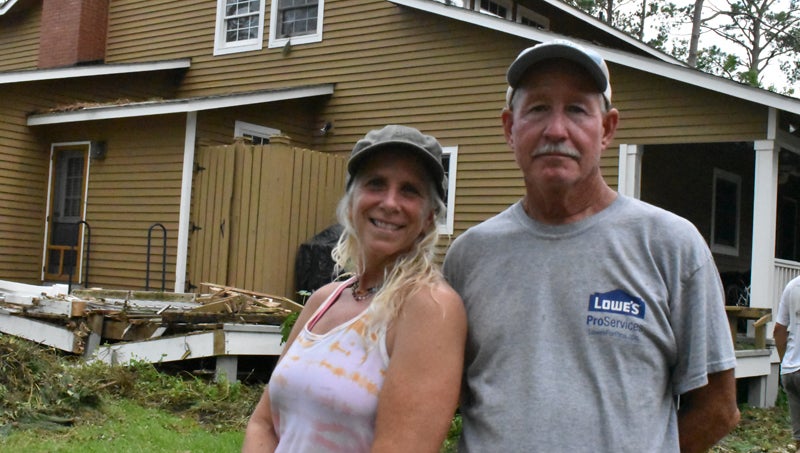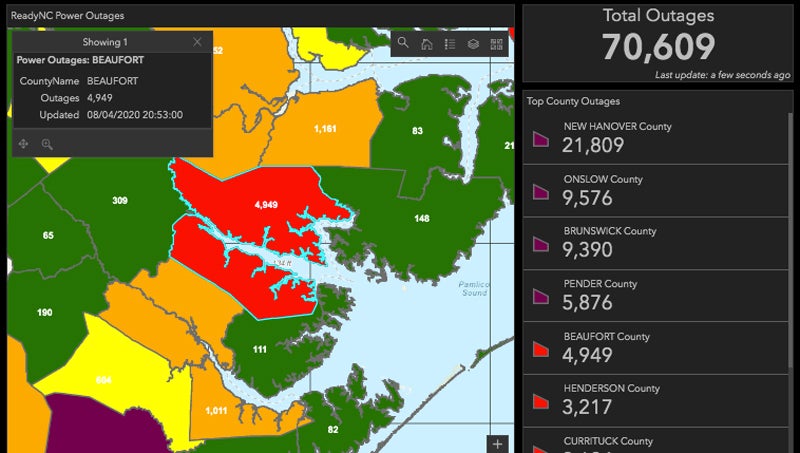River fares better in Florence
Published 10:31 am Friday, September 21, 2018

- (Vail Stewart Rumley/Daily News)
No major sewage spills have been reported along the Tar-Pamlico River during and in the aftermath of Hurricane Florence.
The only spillage reported along the Tar-Pamlico River is a 10,000 gallon sewer spill by the City of Greenville, which happened over the weekend. According to City of Washington Public Works Director Adam Waters, the city’s infrastructure fared better in Hurricane Florence than Hurricane Matthew two years ago.
“It was actually was, from that standpoint. We fared better with our pump station. We had several generator failures during Matthew — three or five generators failed. We did not have any that actually failed during Florence. But we did have more water; there was more water in the streets,” Waters said.
He said the only pump station submerged by the storm surge was one on Short Drive, but it remained operating.
To the south of Beaufort County, however, the Neuse, Lumber and Cape Fear rivers are suffering.
“I know there are lot of waste treatment plants to the south of us that are struggling,” Waters said.
In Johnston County, a 109,000 gallon sewage spill was reported over the weekend and old, unlined coal ash ponds at Duke Energy’s HF Lee facility in Goldsboro were flooded, as well, according to the Sound Rivers website. North Carolina Department of Environmental Quality reports six swine lagoons — the pools where hog waste is stored — have sustained structural damage, 30 have experienced discharges and 21 have been inundated along those southern waterways.
However, floodwaters are contaminated for many reasons, possibly discharge from overwhelmed septic systems, runoff from livestock and fields, chemical spills and more, so the Tar-Pamlico River and its tributaries are not safe for swimming yet, according to Heather Deck, executive director of Sound Rivers.
“DEQ has been sort of quiet. I suspect as the days goes on that we’ll hear of lots of problems.
I know there was tons of water in Granville County and Franklin County,” Deck said. “I get the sense we’re not seeing all the information yet.”
Deck said her team would be out testing water for bacteria in the next day and would release those figures on the organization’s swim guide.
The state recommends not having contact with flood-impacted water until testing is completed, especially contact with open sores or wounds.





